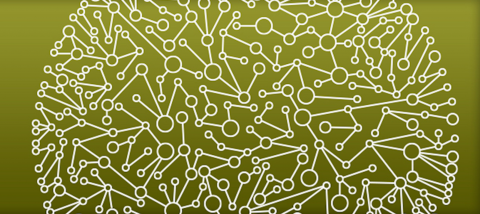Category
Description
Last updated on 2024-02-11T22:41:43+00:00 by LN Anderson
Omics-LHV Profiling of Host Interferon-Stimulated Response to Virus Infection
Background
The human host Interferon (IFN) alpha, beta, and gamma participate in the body's natural immune response to lethal virus infection and disease. The NIAID Modeling Host Responses to Understand Severe Human Virus Infections Research Program project (2013-2018) aimed to develop an improved comprehensive understanding of the host response to a suite of viruses causing lethal infections leveraging a systems biology approach. This project was comprised of a multidisciplinary team of researchers with expertise in virology, host genetics, advanced high-throughput technologies, computational modeling, and data management integration strategies for quantifying the host immune response to cellular trafficking activities identified in primary host tissues and cell lines.
Impact
Herein, PNNL sub-projects provide a never before released comprehensive infectious disease collection of primary and secondary transformation multi-Omics data profiling a series of priority pathogen primary experimental studies for enhanced open-access to viral Omics lifecycle datasets and project metadata. The knowledge gained from this work is expected to provide a strong foundation in facilitating a better understanding of the host immune response to lethal human virus infection by evaluating changes in the abundance for the broad range of host proteins, metabolites, and lipid molecules that directly carry out biological functions.
Interferon Project Reference Citations
- Anderson, Lindsey N, Eisfeld, Amie J, Waters, Katrina M, and Modeling Host Responses to Understand Severe Human Virus Infections Program Project. PNNL DataHub Project: Omics Lethal Human Viruses Project Profiling of the Host Interferon Response to Virus Infection, Processed Experimental Dataset Catalog. United States. 2021. PNNL DataHub (Web). DOI: 10.25584/LHVIFN/1786979
- Eisfeld, A.J., Anderson, L.N., Fan, S. et al. A compendium of multi-omics data illuminating host responses to lethal human virus infections. Sci Data 11, 328 (2024). https://doi.org/10.1038/s41597-024-03124-3
Accessible Digital Data DOI Downloads
Secondary host-associated viral dataset downloads contain one or more statistically processed (normalization data transformation) quantitative dataset collections resulting in qualitative expression analyses of primary host-pathogen experimental study designs. Transcriptomics (T) dataset downloads each have a direct relationship to a primary sample submission corresponding to a specific Human Interferon (IFN), interferon alpha (IFNα), interferon beta (IFNβ), and/or interferon gamma (IFNγ) host stimulated treatment response.
- (T) Expression profiling by array (mRNA) and/or Non-coding RNA profiling by array (miRNA)
Processed Omics Dataset Collections
- IFNaHUH001 DataHub DOI: 10.25584/LHVIFNaaHUHH0011/1661922 (T)
- IFNaCL001 DataHub DOI: 10.25584/LHVIFNaCL001/1661929 (T)
- IFNaIHH001 DataHub DOI: 10.25584/LHVIFNaIHH01/1661926 (T)
- IFNFB001 DataHub DOI: 10.25584/LHVIFNFB001/1661927 (T)
- IFNMVE001 DataHub DOI: 10.25584/LHVIFNMVE001/1661928 (T)
Host samples types include human lung adenocarcinoma cells (Calu-3), human hepatoma carcinoma cells (HUH), immortalized human hepatocyte cells (IHH), human lung fibroblasts (FB), and human microvascular endothelial cells (HMVE).
Linked Primary Data Repository Standards
Sequencing Raw Measurement Data (T)
Primary transcriptome experimental data collections and associated metadata are openly available from the Gene Expression Omnibus (GEO) data repository and have been linked to primary publication data accessions where possible. The GEO data repository is a public domain community data repository supported by the NIH, for promoting the free exchange of MIAME-compliant gene expression profile and array-based data for reuse and discovery.
Acknowledgment of Federal Funding
The data described here was funded in whole or in part by the National Institute of Allergy and Infectious Diseases, of the National Institutes of Health under award number U19AI106772 and is a contribution of the "Modeling Host Responses to Understand Severe Human Virus Infections" Project at Pacific Northwest National Laboratory. Data generated by the Omics-LHV Core for proteomics, metabolomics, and lipidomics analyses for were performed at Pacific Northwest National Laboratory in the Environmental Molecular Sciences Laboratory, a national scientific user facility sponsored by the Department of Energy’s (DOE) Office, operating under the Battelle Memorial Institute for the DOE under contract number DE-AC05-76RLO1830.
Citation Policy
In efforts to enable discovery, reproducibility, and reuse of NIH-funded project dataset citations, we ask that all reuse of project data and metadata download materials acknowledge all primary and secondary dataset citations where applicable and direct corresponding journal articles (Grant U19AI106772) where allowable in accordance with best practices outlined by the FORCE11 Joint Declaration of Data Citation Principles in alignment with NIH acknowledgement requirements (NOT-OD-21-013).
Data Licensing
CC BY 4.0 (dataset DOI downloads), CC0 1.0 (PNNL DataHub policy default)



